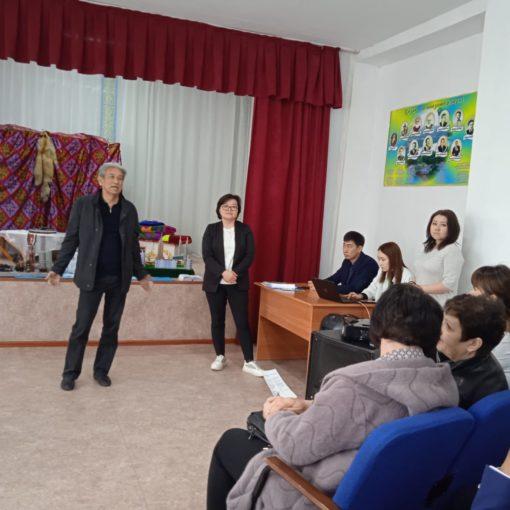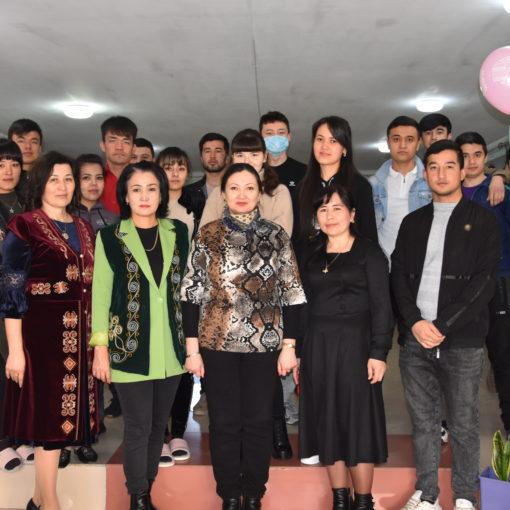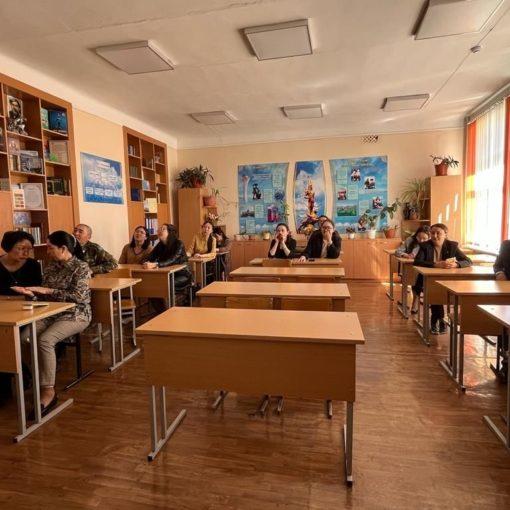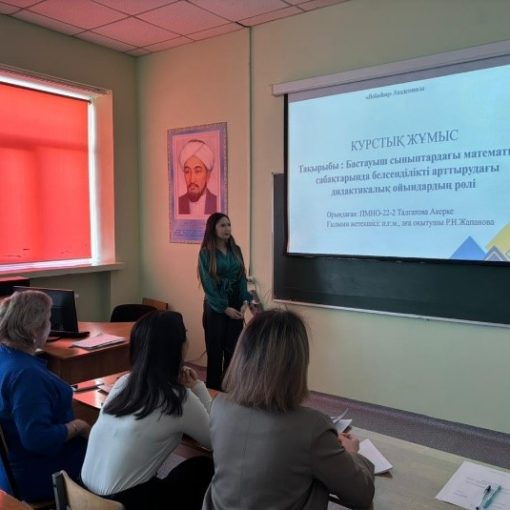Ahiko in Kazakhstan is said to be the Kazakh man whose fate was told by Nursultan Nazarbayev in Japan’s Parliament. Then Elbasy stressed that the fates of many Japanese are connected with Kazakhstan. And the story of Ahiko Tetsuro is one of the brightest examples of the firmness, courage and gratitude of a Japanese prisoner of war.
More:
https://tengrinews.kz/strange_news/kazahstanets-sudbe-kotorogo-rasskazal-yaponii-nazarbaev-305749/.
We know him as a friend of our Academy, a man who after 10 years of Stalinist camps in Karaganda stayed in Kazakhstan.
We have repeatedly met him, and he told us about his fate, life in Aktas.

Despite his advanced age, aksakal was always cheerful, friendly and reasonable. However, recently it has become clear from conversation with him that it is more and more difficult for him to remember and tell about the hardships of military captivity. According to Ahiko, the greatest ordeal for the captives in those years was hunger.
Several times Ahiko Tetsuro was in Japan, met with his surviving relatives and even once tried to stay in Sapporo for good. But he eventually returned to Kazakhstan anyway.

“Japan is a distant beloved homeland. Aktas is a close home,” he said.
“I was born November 15, 1930. When the Russian army came to South Sakhalin in 1945, I attended a military school there. In 1948, I was arrested. Then we were taken to Vladivostok by cargo ship. There were over 100 of us, among us there were women with babies. We were sent to concentration camps. This is how I got into Kazakhstan,” said Ahiko.
At that time, the prisoners were given dry rations: herring and breadcrumbs. Everybody was thirsty, but no water was given, Tetsuro continues his story. On New Year’s Eve, Ahiko found himself in Petropavlovsk. It was there that the prisoner, Ahiko, learned the lessons of survival. The prisoners took away both clothes and all provisions from the newcomers. It was unbearably cold in the cell. A month later, he and other prisoners were sent to Zhezkazgan. Dry rations, issued for five days, ended quickly.
“The hunger was terrible, it hit the memory especially hard. “It’s hard for me to talk about it. “In 1954, many were acquitted. There were still Japanese in Aktas then, they all left. I couldn’t leave. I got married here. My father wrote to me, I didn’t answer. He wrote me to leave the family and come back, but I couldn’t leave the family. I have an eldest son, born in 1959, who works in a mine. Daughter, 1956, she works in a shop. I went to Japan to see my loved ones. I love Japan, but I love Kazakhstan no less! I love going out in the evening and clicking the seeds, and I love talking to my neighbours,” said Ahiko.
Friendship and warm relations have united Ahiko and N.O. Dulatbekov, head of the “Karlag: Memory for the Future” project for many years. The result of such friendship was the publication of the book “Japanese POWs in Karaganda region” in 2011, and later on the basis of Ahiko’s life by the Kazakh Academic Drama Theatre. The play “Akhiko from Aktas” was staged by the Kazakh Academic Drama Theatre named after M. Auezov. This play was dedicated to the 25th anniversary of Independence of the Republic of Kazakhstan, the author of the idea was Dulatbekov N.O.

When Ahiko overcame sadness and nostalgia pierced his heart, he sang. He sang the song in Japanese.
Ahiko Tetsuro always expressed his sincere gratitude to all Kazakhstanis for helping him in his difficult years.
The staff of the Bolashaq Academy expresses its sincere condolences to his wife Elena and all her relatives and friends.
Eternal memory to our dear friend Ahiko!


Read more:





